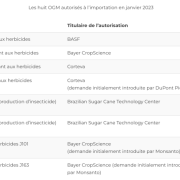Últimos artículos en español
Webinar | Las tierras raras y su rol en la transición verde |
Ecuador ante la consulta popular: ¡11 veces NO! |
Colombia firmó su TLC 17 con los Emiratos Árabes Unidos |







